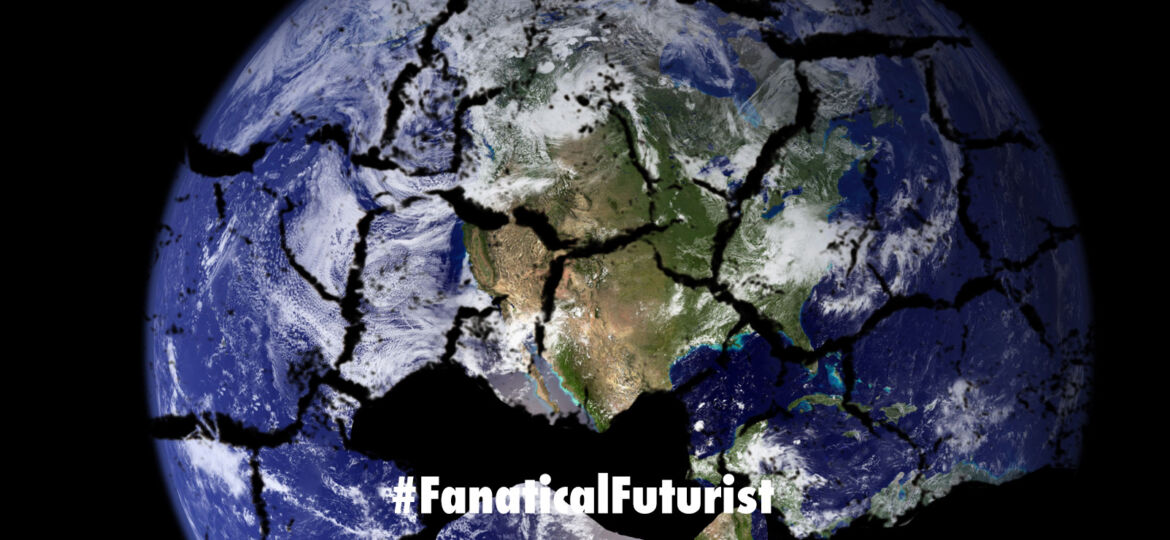
WHY THIS MATTERS IN BRIEF
The United Nations has 17 Sustainable Development Goals, global problems that need global solutions, but so far progress has been slow so a new approach is needed.
 Love the Exponential Future? Join our XPotential Community, future proof yourself with courses from XPotential University, connect, watch a keynote, or browse my blog.
Love the Exponential Future? Join our XPotential Community, future proof yourself with courses from XPotential University, connect, watch a keynote, or browse my blog.
Today Artificial Intelligence (AI) is being woven into the digital fabric of our society where it’s being used to help companies find top hires, find new vaccines, find untold riches, and even run the odd company here or there. For starters. And did I mention AI dictators and politicians? Recently though I’ve seen an uptick in the use of AI to solve some of the world’s grander challenges, such as help governments find new ways to tackle climate change, to develop a digital twin of the entire Earth, and track and predict global chaos. Good luck on that last one!
Now though taking some of these ideas another step scientists from the University of Granada, Ferrovial, and the Royal Academy of Engineering of Spain, who’ve highlighted the need for “unified, accessible, and open data sets that help [organisations] develop projects that solve the United Nation’s 17 Sustainable Development Goals (SDGs),” are trying to use AI to find new ways to help solve some of the world’s greatest challenges.
Back in 2015, in order to protect the planet and ensure peace and prosperity for all, the UN established 17 SDGs as part of its 2030 Agenda in the hope that companies and governments around the world would adopt them and participate in solving a variety of pressing global problems that include everything from climate change and poverty, to equality and famine.
The teams new project called “Engineering as a Facilitator of SDGs: Artificial intelligence and disruptive digital technologies” began back in March 2020 and focuses specifically on finding new ways to “use AI and digital technologies” to help solve the SDGs.
The teams organised their research into three parts – firstly, an introduction to AI and digital technologies, secondly analysis of their application to the SDGs, and thirdly recommendations for action that can help develop projects and support the achievement of associated goals.
As part of their research the authors reviewed the specialised scientific literature, including over a thousand bibliographical references relevant to the 169 targets that have been set to achieve the SDGs.
The project aims to “make an important contribution to our understanding of the analytical capacity of engineering under the umbrella of AI and digitalisation in support of the SDGs” and “address the challenges faced by the world economy and society in the 21st Century.” It also aims to provide insights into the three dimensions that characterise “sustainability,” namely the economic, social, and environmental ones.
One of the conclusions of the research so far is the need for different organisations to share data sets that are “unified, accessible, and open, as this supports the development of projects designed to address many of the global challenges,” and that “Governments and companies must converge toward this objective by generating and sharing data that allow them to successfully take on projects and design solutions to address the SDGs.”
The researchers also point out that it’s imperative to strengthen the links between science and engineering, industry and governments, to reinforce dialogue and expand the different avenues toward achieving high-quality data.
“The SDGs set targets to be achieved at the global level but not all countries and regions of the world are currently in the same position in this race to achieve them. So, the application of AI and digital technologies must obviously be adapted to the situation of each country and targeted at the most pressing SDGs,” the authors explain.
“[Digital technologies] are advancing at a rapid pace which means it is important to look for alternative ways to measure the achievement of the SDGs, ways that are adapted to this accelerated pace of progress and the emergence of new digital paradigms,” they add, “This is especially important given the current world scenario caused by the COVID-19 pandemic, which has undoubtedly had a profound impact on all dimensions of the SDGs, far beyond the strictly health related aspects.”

















[…] Read the complete article at: https://www.fanaticalfuturist.com […]